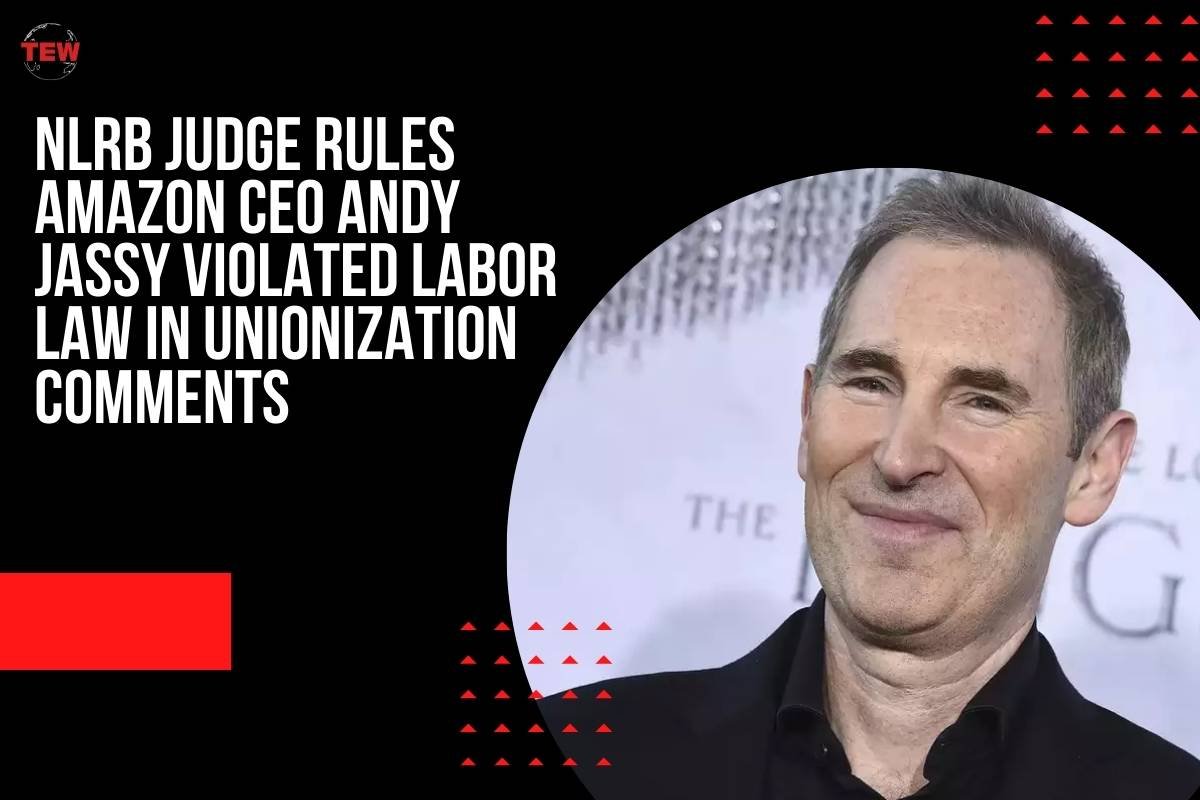(Source-hr.economictimes.indiatimes)
A National Labor Relations Board (NLRB) judge delivered a ruling on Wednesday, concluding that Amazon CEO Andy Jassy had infringed federal labor law with comments he made regarding unionization efforts within the company. The ruling, issued by Administrative Law Judge Brian Gee, centers on interviews Jassy conducted with media outlets in 2022, during a period marked by increased union campaigns in Amazon’s warehouse and delivery operations.
Judge Gee highlighted statements made by Jassy during interviews with CNBC’s “Squawk Box,” Bloomberg Television and The New York Times’ DealBook conference. In April 2022, Jassy cautioned on CNBC that unionization might diminish employee empowerment, leading to a slower and more bureaucratic work environment. Similarly, during the Bloomberg interview, Jassy expressed concerns about the potential limitations on employees’ ability to effect change without a union. At the DealBook conference, he asserted that a workplace without a union was not bureaucratic or slow.
Analysis of Jessy’s Statements and NLRB Ruling
According to Judge Gee’s ruling, Jassy’s remarks conveyed a veiled threat to employees, insinuating that unionization would result in decreased empowerment and hindered efficiency. While some of Jassy’s comments regarding changes in the worker-employer relationship were deemed lawful, others were found to have overstepped the boundaries of acceptable discourse under labor law.
The NLRB initially filed a complaint against Amazon and Jassy in October 2022, leading to Gee’s recent ruling. In response, an Amazon spokesperson, Mary Kate Paradis, expressed the company’s disagreement with the ruling, asserting its intention to appeal. Paradis emphasized Amazon’s commitment to fostering open dialogue on labor-related issues, characterizing the ruling as an encroachment on free speech rights.
As per the judge’s recommendation, Amazon would be instructed to refrain from making similar comments in the future, and the company would be required to disseminate a notice about the order to its employees nationwide. The ruling’s implications extend beyond Amazon, serving as a reminder of the delicate balance between employers’ rights to express opinions and employees’ rights to engage in union activities without fear of reprisal.
Amazon’s Response and Potential Implications
The outcome of Amazon’s appeal and the broader ramifications of the ruling remain uncertain. However, the case underscores the ongoing tensions surrounding labor relations in the modern workplace, highlighting the need for clear guidelines and safeguards to protect the rights of both employers and employees in the context of unionization efforts.





